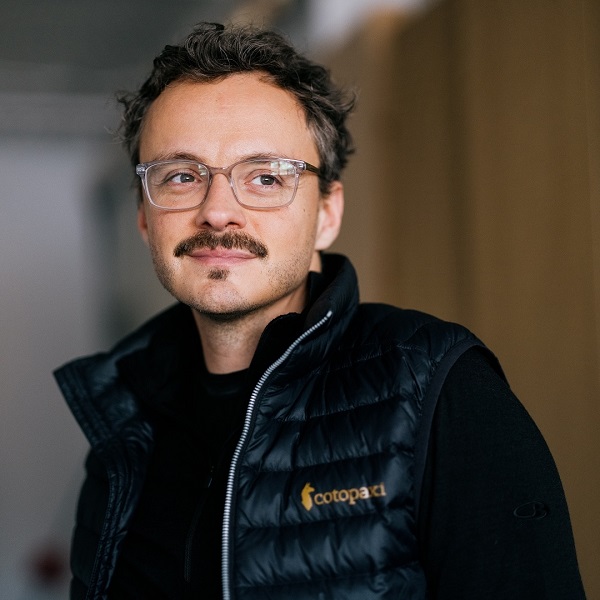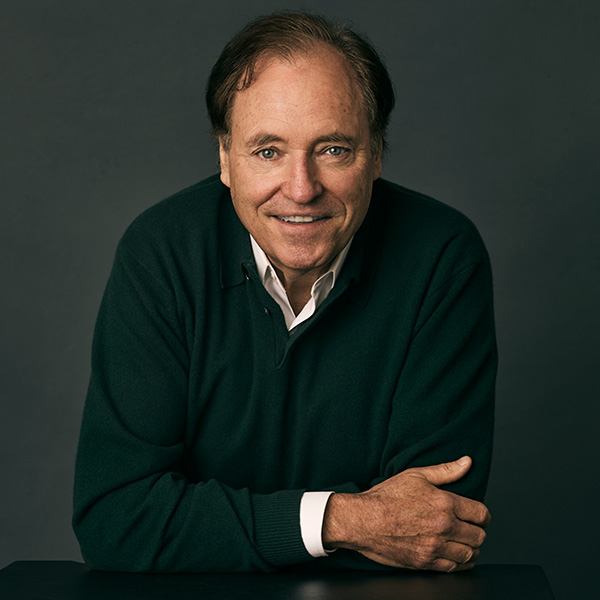The start of the interview might have caught Éric Lachance, BCom’96, president and CEO of Quebec/Vermont energy giant Énergir (formerly Gaz Métro), a bit off guard.
“I‘ve just looked up ‘CEO and psychopath…’” the inquisitor began.
“Okay…,” came a careful response with a nervous laugh. “It’s a good start. I’m not that scared at all.”
The question gets to the heart of what sets Lachance apart from many in the C-suite.
Research has shown that a small, but not insignificant, percentage of senior corporate leaders display psychopathic tendencies, and are frequently rewarded and glorified for them.
Some “alpha male” characteristics – charisma, boundless energy, determination – are highly praised, but often accompanied by “egocentricity, predatoriness, recklessness, a lack of empathy, and a propensity for manipulation and exploitation,” according to a Fortune article by University of San Diego business professor Simon Croom.
Enter Lachance, a quiet, introspective, self-acknowledged introvert, who, at 43, was named Énergir’s vice-president of finance in 2017 and, a year later, its chief financial officer and senior vice-president heading regulatory, IT and logistics. Eighteen months on, he was promoted to president and chief executive officer – all despite the fact he readily admits he’s not someone who will shine on a stage or be the first in the room to stake out a position.
Born and raised in L’Ancienne-Lorette, a suburb of Québec City, Lachance opted for McGill for his university studies.
“At the time, McGill was one of a few universities offering a bachelor’s degree that combined enough of both finance and economics in its curriculum, so I did the [program] with joint honours.”
McGill’s international reputation has been a decided plus. “More important,” he says, “was the program’s combination of economics and finance. Economics provides an understanding of the impact of multiple factors, thinking about equilibriums, societal impacts, maximizing and/or minimizing according to certain constraints. Finance focuses on how all this affects the value of a company, the financial sustainability of its business model.
“On the financial side, you start on the strategy, not the execution; as a CEO, it’s the opposite,” he says. “The program prepared me to be an investor and leader who understands how the economic environment affects businesses, using finance as a tool to move along through different roles.”
So, absent some of that fabled alpha male skillset, how does an acknowledged introvert ascend the corporate ladder at a comparatively young age?
“It’s a mix of many things,” Lachance says. “You need to have enough appetite for risk to actually seize an opportunity when it comes along.”
Interpersonal relationships are important, he says. “Being introverted doesn’t mean you’re not good at personal relationships … and my interpersonal skills are pretty good. I became sort of a go-to guy.
“In the end, your bosses want to succeed, so my mindset was, ‘If I help them succeed, they’ll think of me next time when there’s something more challenging.’”
While luck creeps into the equation, Lachance says taking an I’m-just-happy-to-be-here-hope-I-can-help-the-ball-club approach pays off. He mentions an opportunity he grabbed while working at the Caisse de dépôt et placement du Québec, when a more senior manager left the Quebec pension management firm and he was asked to temporarily take on a big file – Québecor. “I was a young analyst. I wasn’t trying to take someone else’s place; I was just trying to help the organization.”
Handling the file adroitly, he was kept in the more senior role, which led him to take another risk: moving to lead a Caisse team in Paris from 2014 to 2016. He returned to Quebec, not with the Caisse, but as Énergir’s CFO, having already sat on the latter’s board, where he was known for asking tough questions.
There are advantages to being an introvert in leadership, Lachance maintains.
“A leadership team expects the CEO to steer the organization,” he says, and that has meant an adjustment for him. “I can go onto a stage and talk, but am I eager to do that? Probably not. But am I happy to be on a stage and take questions from employees? Yes, I’m very happy to do that, and that’s going to be more effective as a way of communication for me. Being an introvert allows me to build a safe place for people to say what they think.”
Lachance has faced a number of challenges during his rise to the top. He counts “gaining trust while being the outsider” among them, whether as a Québécois working in France or joining Énergir while coming from the investment world with little operational experience.
Of course, being a business leader during the COVID pandemic was a challenge in itself, which he describes as, “having to deal with something basically nobody had a clue about, so really no playbook available, just doing an amalgamation of pieces here and there from other situations that shared some similarities.” Lachance and his team had to make sure that essential operations carried on, while dealing with customers who were facing financial hardships.
Lachance is the leader of a major fossil fuel company now trying to get out of that business. Énergir is undertaking a massive diversification effort in order to dramatically reduce its carbon-based fuel sales by up to 70 per cent in 2030, and be out of that product altogether by 2050.
In 2007, Énergir, then Gaz Métro, finalized its nearly $200-million U.S. purchase of Green Mountain Energy in Vermont, which also provides wind power to a host of American states from coast to coast. This plugs Énergir into a growing company and network dedicated to providing carbon-neutral energy. Half of Énergir’s business is now done in the United States, Lachance says.
The thoughtful CEO’s philosophy of energy diversification can be summed up in a word: flexibility. It is both a leap of faith and the way of the future, he says. Working hand-in-hand with Hydro-Québec, Énergir is seeking to supplant heat and power provided by natural gas with energy provided from other sources, including hydro, solar and wind.
The alternatives, he says, have to fit the situation. So perhaps wind is a better option for Quebec than solar, because of our short winter days. And perhaps because of the cold, there will need to be a natural gas supplement for winter heating for at least the medium term because existing alternatives can’t yet do it all.
It is an ambitious change in direction for the company and Lachance will be expected to play a major role in pushing it forward. That will likely involve situations that are a little outside his comfort zone.
“While introverts typically don’t seek the spotlight in large gatherings or in the media, it is an expectation that needs to be met,” says Lachance. “In my case, while I don’t seek it, I am comfortable doing it, but had to ‘impose’ being myself on how this is done so it fits my personality rather than me playing a role.”


